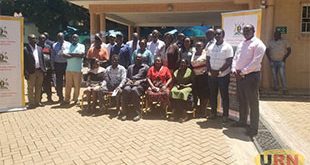
Kampala, Uganda | THE INDEPENDENT | The Global Malaria Consortium has asked the Ugandan government to focus on malaria interventions that do not involve a lot of funding. According to the consortium president Kenneth Staley, the government instead needs to sensitize the public to clear breeding places for mosquitoes.
Malaria is endemic in approximately 95 per cent of the country, affecting over 90 per cent of the Ugandan population. According to records by the Malaria Control Programme, clinically diagnosed malaria accounts for 30-50 per cent of outpatient visits at health facilities, 15-20 per cent of all hospital admissions, and up to 20 per cent (10,500) of all hospital deaths in the country annually.
According to Ministry of Health records, 27.2 per cent of inpatient deaths among children aged under five years of age is due to malaria, making it the leading cause of morbidity and mortality.
Over the years, the government has invested in mainly four highly effective malaria prevention and treatment measures: they include the distribution of insecticide-treated mosquito nets, indoor residual spraying, accurate diagnosis and prompt treatment with artemisinin-based combination therapies and intermittent preventive treatment of pregnant women.
The ministry of health has specifically been implementing a major universal coverage campaign, which aimed to distribute 24 million insecticide-treated mosquito nets across the country, as part of a commitment to reduce the malaria cases to near zero by 2020.
But the interventions are costly, according to Staley. He says households can take on behaviours that reduce the threat of Malaria like sleeping under mosquito nets, clearing bushes and waterlogged areas around homesteads, among others in order to control the spread of Malaria.
Staley adds that detecting malaria and seeking care immediately will reduce the burden not only in Uganda but across the sub-Saharan region, an area with the highest malaria burden globally. He was speaking during a meeting with the Deputy Speaker of Parliament Jacob Oulanyah.
The Deputy Speaker of Parliament Jacob Oulanyah said there should be a move to eradicate malaria completely and not just interventions aimed at control of the disease. He says with a joint effort, Malaria can be eradicated.
*****
URN
 The Independent Uganda: You get the Truth we Pay the Price
The Independent Uganda: You get the Truth we Pay the Price



